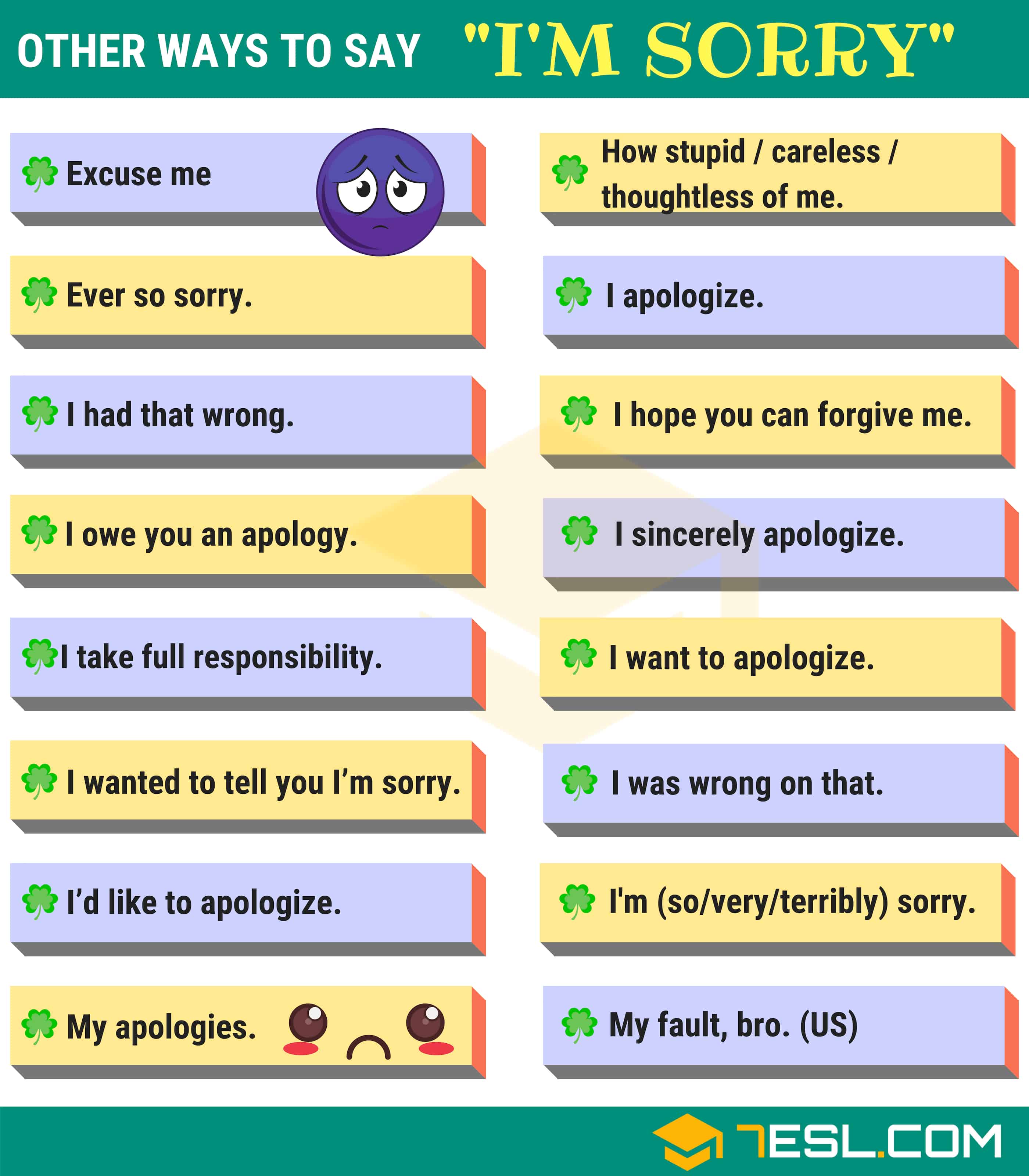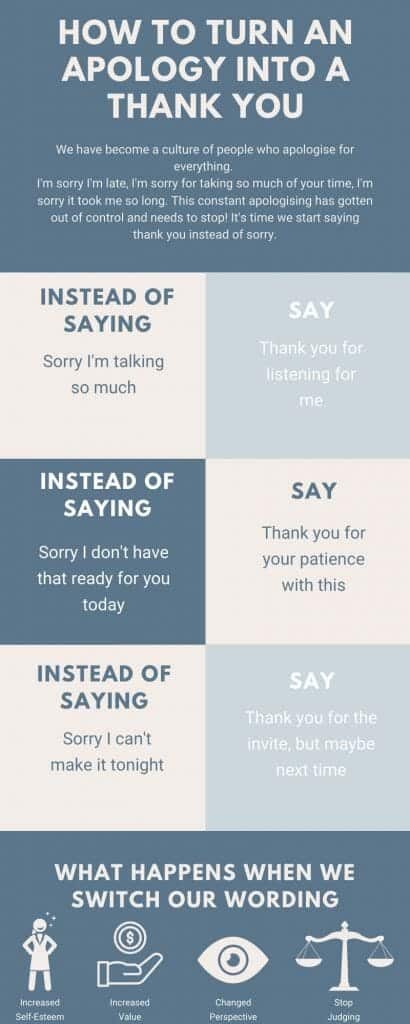What To Say Instead Of Sorry At Work

Stop apologizing! Overuse of "sorry" in the workplace undermines your authority and devalues genuine remorse. Learn alternative phrases to communicate effectively and professionally.
This guide provides immediate solutions to replace habitual apologies with confident, assertive language. We'll explore practical phrases for common workplace scenarios, empowering you to project strength and competence.
Reframing Common Apologies
Instead of saying "Sorry I'm late," try "Thank you for your patience" or "I appreciate you waiting." This shifts the focus to gratitude rather than guilt.
When you make a mistake, avoid "Sorry, that was my fault." Opt for "I take responsibility for this" or "I'll correct this immediately." Ownership is key.
If you didn't hear someone clearly, ditch "Sorry, what did you say?" Instead, use "Could you please repeat that?" or "I didn't quite catch that."
Acknowledging Impacts, Not Just Mistakes
Don't just say "Sorry for the inconvenience." Articulate the impact and offer a solution. For example: "I understand this delay affects the project timeline. I'm working to expedite the remaining tasks."
According to a recent study by Korn Ferry, women are more likely than men to overuse apologies in professional settings. This can negatively impact their perceived leadership abilities.
Deborah Tannen's research on gendered communication styles further emphasizes the importance of mindful language choices. Understanding these nuances can improve workplace dynamics.
Specific Scenarios & Alternative Phrases
Missed a deadline? Don't say "Sorry, I missed the deadline." Say: "I'm focused on completing this and will have it to you by [specific time]." Show commitment.
Need clarification on a task? Replace "Sorry to bother you, but..." with "Could you clarify [specific aspect of the task]?". Be direct and efficient.
If you disagree with an idea, avoid "Sorry, but I don't think that will work." Try "I have a different perspective on this" or "Let's consider an alternative approach." Be respectful.
The Power of Proactive Communication
Instead of apologizing preemptively, focus on clear communication. For example, if you anticipate a delay, inform your team proactively. This demonstrates responsibility and forethought.
Use "I will" instead of "I'll try" to convey certainty and confidence. This small change in language can have a significant impact on your credibility.
Practice these alternatives in low-stakes situations to become more comfortable using them. Record yourself speaking to identify areas for improvement.
Long-Term Benefits
Replacing habitual apologies builds confidence and strengthens your professional image. It signals that you are capable, responsible, and assertive.
By focusing on solutions and impact, you contribute to a more productive and positive work environment. It reduces ambiguity and encourages collaboration.
This shift in language fosters a culture of accountability and empowerment. It empowers individuals to take ownership and drive results. Eliminating unnecessary apologies is a critical step in achieving this.
Continue practicing these strategies and observe the positive impact on your interactions. Monitor your language and identify areas where you can further refine your communication style.


















